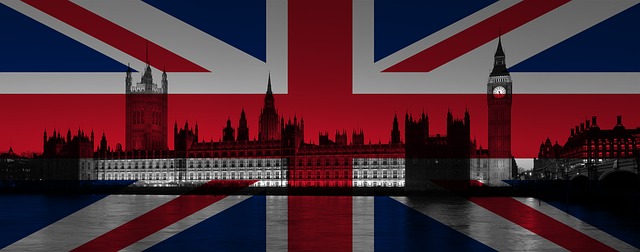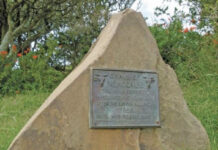 In social discourse today one often hears and encounters the concept of pride in relation to particular groups of people – gay pride, black pride, indigenous pride, and so on. In my home town of Melbourne, Trades Hall, that physical epicentre of old fashioned Socialism, displays an enormous rainbow banner with the word ‘pride’ in large white letters at the foot, this a reference to the fashionable cause of the day – gay marriage. The irrelevant types who inhabit the building, and use its façade as a billboard, are want also to display banners abusing the current Prime Minister as ‘hopeless’ or ‘ignorant,’ apparently oblivious to the fact that the majority of the workers whom they claim to represent actually voted for him and his party at the last general election. But we digress… fashionable political messages are de rigour these days for the cultural elitists who inhabit large buildings. Even the city’s Anglican cathedral can be used as a billboard in this way (‘Let’s fully welcome refugees’ is its slogan, this after church leaders accused the then opposition party of stooping to the use of slogans in the context of the immigration debate). Hypocrisy and misuse of architecture aside, driving past the rainbow banner did put the word pride front of mind for me, and I came to this realisation – I’m proud of something too, I’m proud of my culture and tradition, of my ethnicity and my religion, and I‘m proud of the way in which all of that, so important to my own sense of identity and personhood, is so bound up with that somewhat eccentric island thousands of miles from my own home and country. Paraphrasing Shakespeare, I speak of that “blessed plot,” that “sacred realm,” that England. Is that okay, I wondered, as I passed the pride banner at Trades Hall? Would the self loathing creatures who inhabit that building ever connect the word pride with a symbol of British culture and tradition, or with their own country’s flag? Even more alarming, I mused, would the city’s Anglican cathedral do so? Or dare to do so?
In social discourse today one often hears and encounters the concept of pride in relation to particular groups of people – gay pride, black pride, indigenous pride, and so on. In my home town of Melbourne, Trades Hall, that physical epicentre of old fashioned Socialism, displays an enormous rainbow banner with the word ‘pride’ in large white letters at the foot, this a reference to the fashionable cause of the day – gay marriage. The irrelevant types who inhabit the building, and use its façade as a billboard, are want also to display banners abusing the current Prime Minister as ‘hopeless’ or ‘ignorant,’ apparently oblivious to the fact that the majority of the workers whom they claim to represent actually voted for him and his party at the last general election. But we digress… fashionable political messages are de rigour these days for the cultural elitists who inhabit large buildings. Even the city’s Anglican cathedral can be used as a billboard in this way (‘Let’s fully welcome refugees’ is its slogan, this after church leaders accused the then opposition party of stooping to the use of slogans in the context of the immigration debate). Hypocrisy and misuse of architecture aside, driving past the rainbow banner did put the word pride front of mind for me, and I came to this realisation – I’m proud of something too, I’m proud of my culture and tradition, of my ethnicity and my religion, and I‘m proud of the way in which all of that, so important to my own sense of identity and personhood, is so bound up with that somewhat eccentric island thousands of miles from my own home and country. Paraphrasing Shakespeare, I speak of that “blessed plot,” that “sacred realm,” that England. Is that okay, I wondered, as I passed the pride banner at Trades Hall? Would the self loathing creatures who inhabit that building ever connect the word pride with a symbol of British culture and tradition, or with their own country’s flag? Even more alarming, I mused, would the city’s Anglican cathedral do so? Or dare to do so?
I will never forget the day I arrived in London for the very first time. I was nearing forty and this was my first excursion to Europa. For many of my countrymen (Australians), a few years in “the old dart” pouring beers in a pub is all but a rite of passage. For me, however, life had intervened. In my twenties and thirties I was numbered among the working poor, struggling to make ends meet with a young family in a housing commission (council house) suburb, with travel all but a distant, seemingly impossible, dream; even as my friends and contemporaries went on bus tours through the continent and told stories of getting pissed in Belgium and waking up in Austria, shared exotic tales of visits to the live sex shows and whores of Amsterdam, and, of course, bragged about the cricket, or some other prominent example of Australian sporting prowess , in bars all over Britain. Two decades later, and I finally made it to that “blessed plot,” that “sacred realm,” and I have been back numerous times since. Each time I feel as I did that very first time, as I emerged from the underground at Baker Street, and walked out into the blistering cold, and onto the Marylebone Road, and experienced an overwhelming sensation of feeling at home and among friends, of an all but tangible closeness to the people, the history, and the traditions that had shaped me as a person, and my country of origin as a nation, and made us who and what we are.
I felt then, and continue to feel now, a strong sense of connection to that blessed plot, that real, that island, so many thousands of miles from my home here in far away Australia. Most Australians are not willing to express it quite like this, but I suspect many of us feel it nonetheless – that powerful attraction that lures us in large numbers, in our younger years, to live and work in the UK; that sense of great satisfaction we get from beating the poms in the Ashes (cricket for the uninitiated). It’s an intense rivalry, but a chivalrous one too, rather like the sort of good natured competiveness among cousins over a backyard hit of cricket on Christmas Day. For an Australian, there’s an intuitive sense of familiarity when travelling through England’s green and pleasant land, a sense of belonging and of togetherness, that has been ingrained by the common history and institutions that has shaped our two nation, even if the differences are apparent too, and perhaps growing. Whatever the future may hold, however, the past cannot be undone or changed. From England came the social and philosophical ideals of the Enlightenment, the instruments of government (the Westminster system), the rule of law, and two thousand years of history and tradition that stamped itself indelibly on the great southern land. As much as some Australians seek to deny it, all of this is still very much with us today, and remains visibly apparent in our symbols of nationhood, not least the Australian flag, which bears the Union Jack in the top left corner, and in the continuing status of the British Monarch as the Australian head of State.
It seems one can be proud of just about anything in Australia today, certainly in a public way, with one exception – that of our English history and origins. To express pride in this invites, at best, ridicule, and at worse, accusations of racism, if not fascism. In social discourse, to be an out and proud gay man is fine, but to affirm the importance of the traditional family attracts strong opposition and has social commentators and grim faced ‘experts’ warning of dire consequences among ‘excluded’ and, apparently easily offended ‘minorities.’ To express pride in one’s ethnic or racial origins is not only fine, but to be celebrated, and often loudly applauded by earnest types keen to express their enthusiasm for multiculturalism for fear of being branded as a racist – unless, of course, you are white, for a person of Anglo-Saxon background to express ‘white pride’ in any way is not only not okay, but hazardous in all sorts of ways. To be proud of one’s religion is fine, if it is Islam, for this will have sympathetic media columnists wearing the hijab as a show of solidarity with you, but to be proud of one’s religion if of the Christian variety, is not okay, especially if Roman Catholicism, this will attract howls of derision and accusations of paedophilia. Even to express pride in the achievements of one’s own nation, at this moment in Australian national life, habitually attracts a chorus of embittered malcontents and offence takers, eager to reply with well rehearsed accusations about celebrating “invasion day,” of imperialistic oppression, capitalist wars, and the mistreatment of asylum seekers.
But I am proud, nonetheless. Proud of the inheritance of English tradition, both in a personal way, for myself as a descendent, generations ago, of English lineage; and I’m proud in a corporate way, of the manner in which the history and tradition of that blessed plot and that sacred realm called England has shaped the Commonwealth of Australia. In saying this, I do not claim, or believe, that any one race, ethnicity, religion or culture is superior, in any way, to any other. But I do claim to be an Australian of white, Anglo-Saxon, English background, confessing the Christian faith, and deeply grateful for the history, the traditions, the ideas and ideals, and the institutions and organisations, bequeathed to this nation by virtue of its origins as a part of the British Empire, expressed now in its continuing membership among the Commonwealth of Nations.
And I’m proud of that. Very proud.









